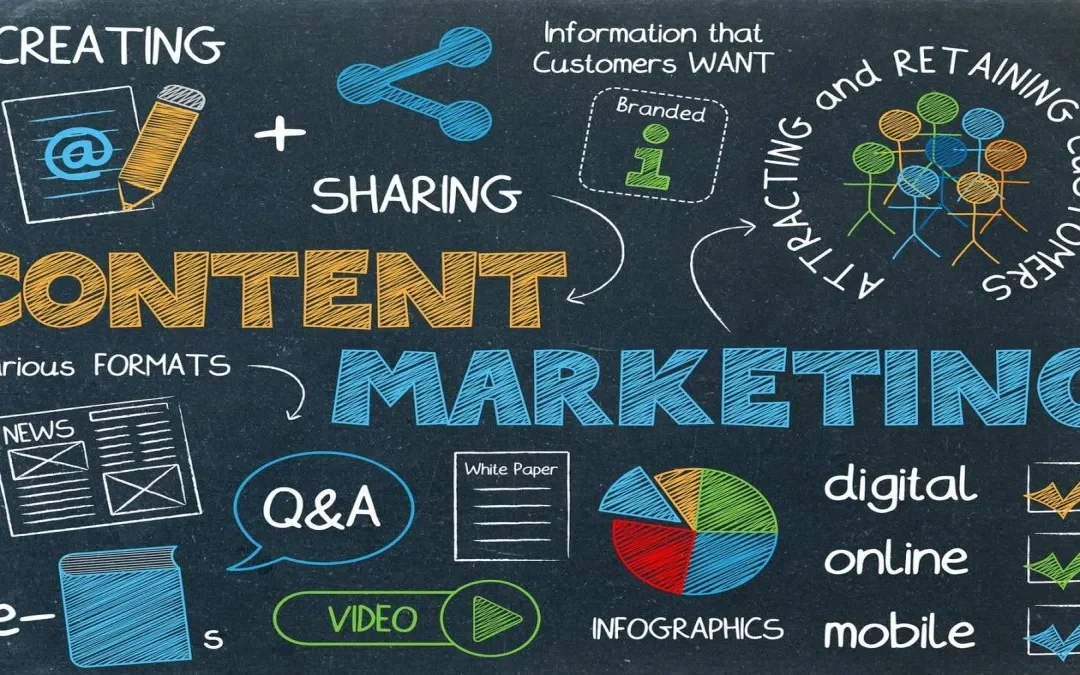In today’s crowded digital landscape, simply creating content isn’t enough. To truly stand out and achieve business goals, you need a solid content marketing strategy — one that connects with your audience, builds trust, and drives action.
In this guide, we’ll break down what a content marketing strategy is, why it matters, and the key steps to building an effective one for 2025 and beyond.
What Is a Content Marketing Strategy?
A content marketing strategy is a detailed plan that outlines how a business will use valuable, relevant, and consistent content to attract and retain a clearly defined audience — ultimately driving profitable customer action.
Definition:A content marketing strategy is a roadmap for planning, creating, distributing, and measuring content to achieve specific business objectives like brand awareness, lead generation, and sales.
It ensures your content aligns with audience needs and business goals, rather than posting randomly and hoping for results.
Why Is a Content Marketing Strategy Important?
Without a strategy, content creation becomes guesswork. With a strategy, you can:
- Target the right audience effectively
- Deliver consistent messaging across all platforms
- Boost SEO rankings and increase organic traffic
- Nurture leads through the buyer’s journey
- Measure performance and adjust tactics based on data
- Maximize ROI from content marketing efforts
In short, strategy turns content from noise into a business asset.
How to Build an Effective Content Marketing Strategy (Step-by-Step)
Set Clear Goals
Define what you want to achieve:
- Increase website traffic?
- Generate more qualified leads?
- Improve brand awareness?
- Boost customer loyalty?
Make your goals SMART: Specific, Measurable, Achievable, Relevant, and Time-bound.
Understand Your Audience
Use buyer personas to answer:
- Who are your ideal customers?
- What are their pain points?
- Where do they hang out online?
- What type of content do they prefer?
Understanding your audience ensures your content resonates.
Perform a Content Audit
If you already have content:
- What’s performing well?
- What needs updating?
- What can be repurposed?
Content audits reveal gaps and opportunities.
Choose Your Content Types and Channels
Match content types to your goals and audience:
Content TypeBest ForBlog postsSEO, lead generationVideosEngagement, storytellingInfographicsData visualization, social sharingEbooks/White PapersLead nurturing, authority buildingPodcastsThought leadership, deeper engagementWebinarsEducation, B2B marketingThen, decide on the best distribution channels: website, email, social media, YouTube, podcasts, etc.
Create a Content Calendar
Plan content topics, formats, publication dates, and promotional strategies.Consistency builds trust and keeps your brand top of mind.
Optimize for SEO
For organic discoverability:
- Conduct keyword research
- Use SEO best practices (titles, meta descriptions, headers)
- Create high-quality, in-depth content
SEO and content marketing go hand-in-hand for driving sustainable traffic.
Promote Your Content
Content promotion is just as important as creation:
- Share on social media
- Send email newsletters
- Collaborate with influencers
- Invest in paid ads if necessary
Amplify your reach to maximize content impact.
Measure and Adjust
Use tools like:
- Google Analytics
- Ahrefs or SEMrush
- HubSpot
- Social media insights
Track KPIs like traffic, engagement, conversion rates, and ROI. Then refine your strategy based on the data.
Benefits of a Strong Content Marketing Strategy
- Higher SEO rankings and website traffic
- More qualified leads
- Better brand authority and trust
- Improved customer retention
- Increased sales conversions
- Lower customer acquisition costs
Content marketing is a long-term investment — but one that compounds with consistency.
Conclusion
A content marketing strategy is your blueprint for turning casual browsers into loyal customers. It ensures that every piece of content you create serves a purpose — whether that’s building authority, driving traffic, or closing sales.
In 2025 and beyond, the brands that succeed will be those that plan strategically, execute consistently, and adapt based on real data. With the right content marketing strategy, you can unlock sustainable growth and meaningful connections with your audience.
FAQs
1. What is a content marketing strategy?
A content marketing strategy is a plan that outlines how a brand will create, publish, and promote content to achieve business goals like awareness, leads, or sales.
2. Why is having a content marketing strategy important?
It helps ensure your content efforts are aligned with audience needs and business objectives, leading to better results and higher marketing ROI.
3. How do I start building a content marketing strategy?
Begin by setting goals, understanding your audience, auditing existing content, planning new content topics, optimizing for SEO, and tracking performance.
4. What content works best for content marketing?
Blogs, videos, podcasts, infographics, and ebooks are among the most effective, depending on your audience preferences and marketing goals.
5. How long does it take to see results from content marketing?
Content marketing is a long-term game; typically, it takes 3–6 months to start seeing consistent traffic and lead generation results from strategic efforts.

